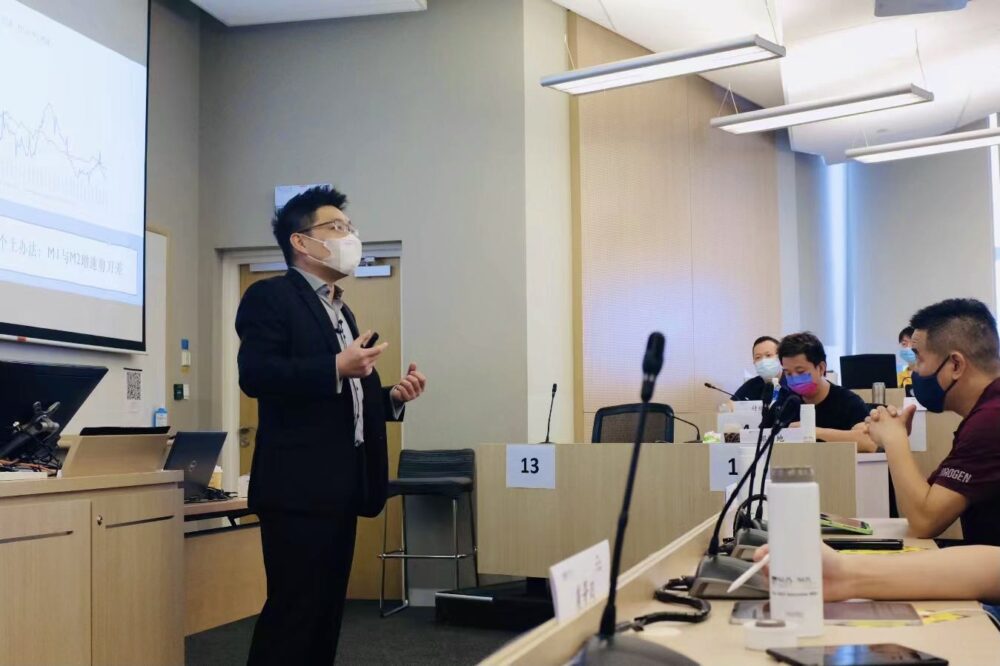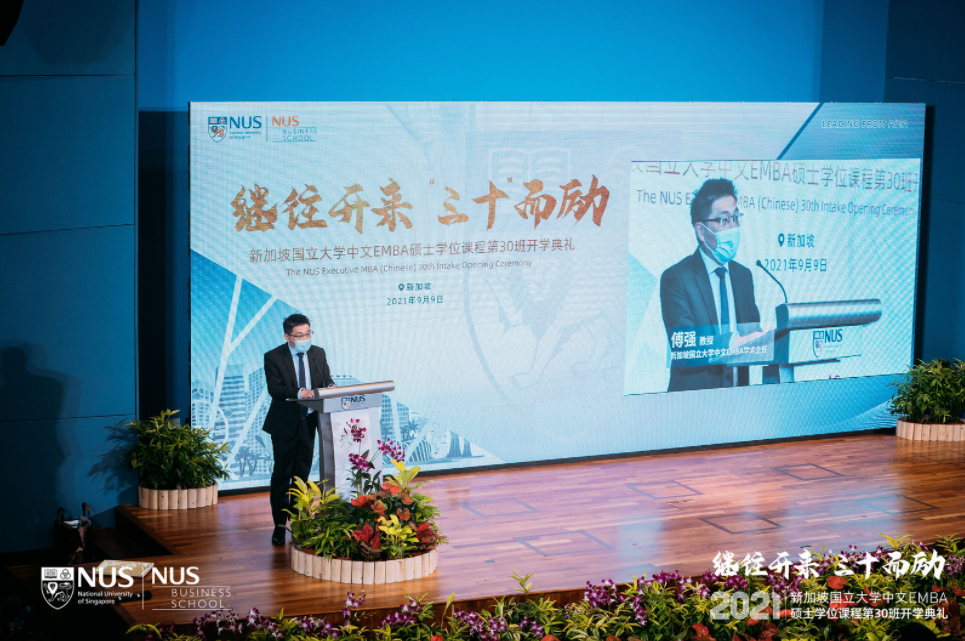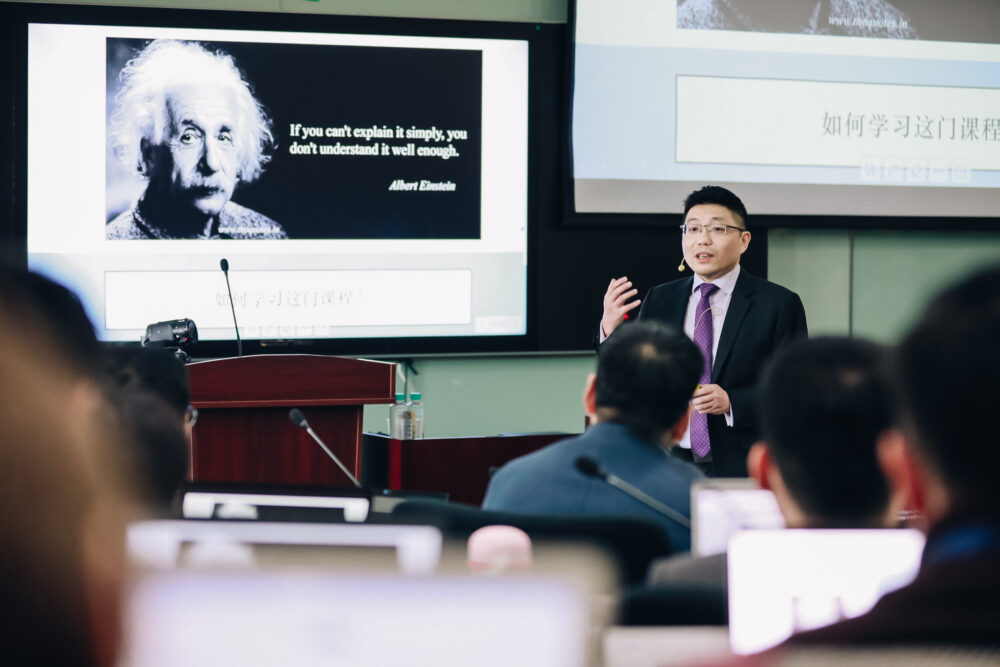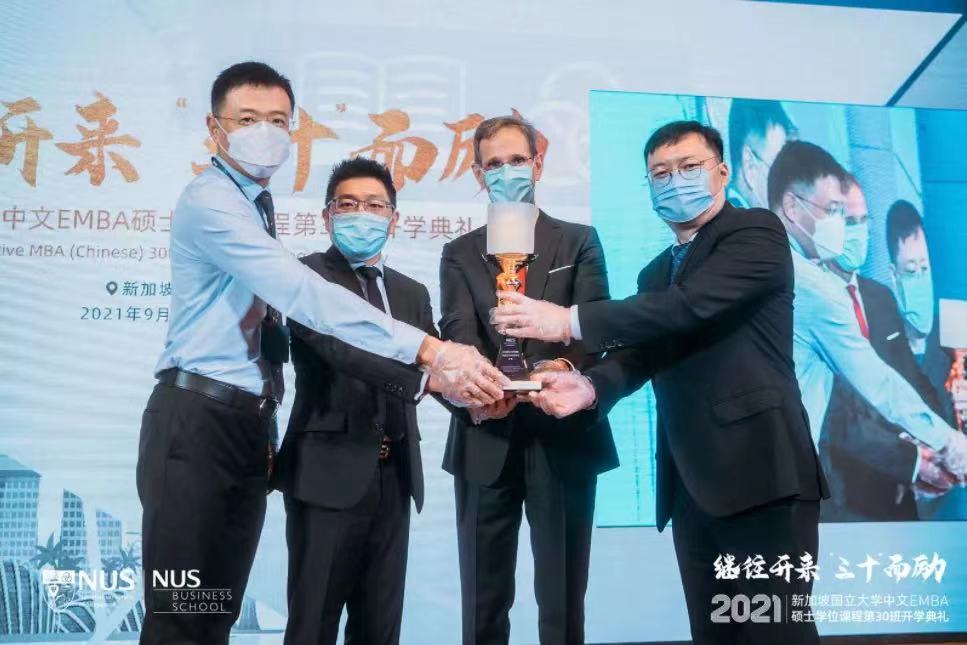In this time of rising geopolitical tensions, innovation, and widespread disruption, the demand for skilled talent with a global perspective has never been higher. This is something Assoc Professor Fu Qiang of the National University of Singapore (NUS) Business School knows all too well.
As Academic Director of the NUS EMBA (Chinese) programme, Assoc Prof Fu looks ahead to a future where the defining characteristic of programmes will be their ability to connect students to a global audience. Programmes like the Chinese EMBA can help nurture and incubate the next generation of world business leaders, combining Eastern cultural influences with an international perspective. We caught up with him to find out more:
What challenges do business leaders of the future face?
The world is changing very quickly. Old business models are being reinvented, market structures are evolving and reforming in new and exciting ways. There is a lot of pressure on today’s business leader to stay ahead of the game and to be constantly adapting and evolving.
The definition of business is also being transformed. Traditional businesses used to be much simpler, and the responsibility of the leader was simply to maximise shareholder value. Now, the whole world is clamouring for inclusive growth. Businesses are expected to play a much bigger role in society and to create value for a broader range of stakeholders, including customers, employees, and the wider community. The multidimensional nature of the modern business is illustrated by the growing emphasis on ESG, and many companies are still struggling to manage these new commitments.
Leaders today have to strike a delicate balance. They must juggle between delivering results in the present, while at the same time transforming their businesses to prepare for the future. I once asked one of our EMBA participants why he joined our programme, his answer was simple “The world is changing too quickly, I can’t keep up!”.
How can EMBA programmes evolve to keep pace with a dynamic global marketplace?
The very nature of education is changing, and people everywhere are embracing lifelong learning. Whether you are 18 or 80, there is a growing understanding that we will need to update our skills continuously across our lifespans.
Universities have to champion this change and be constantly updating our programmes and content so that we can continue bringing state of the art ideas and concepts to the classroom. We also need to give students the skills to take that knowledge out into the world. Our role as educators is not to present students with existing knowledge, but to encourage students to think both analytically and creatively.
To be a successful leader today, it is not enough to have a deep understanding of one or two areas of specialisation. There will always be a need for knowledge in core areas such as accounting, finance and marketing, but leaders now need to have a grasp of different topics like Artificial Intelligence, Blockchain, and Design Thinking. EMBA programmes like ours can provide a window into this world, helping them understand and interpret all these new ideas and information, and connecting the dots so that they have a solid platform for lifelong learning.
After 25 years, how does the NUS EMBA (Chinese) programme continue to deliver value to its participants?
Singapore is very well-positioned as a junction that connects East and West. We have been very successful at materialising this concept, and NUS Business School was actually the first leading institution of higher learning to offer its EMBA programme in Chinese, some 25 years ago.
Even though the programme is delivered in Chinese, the curriculum is structured in a Western way. The modern management sphere needs students steeped in Chinese culture, but who are also well-versed with Western methods and modes of thinking. To this end, our faculty are very diverse – many are Chinese but educated in leading Western Universities. We also have faculty members from Europe and America who are very interested in engaging with emerging Eastern cultures.
Diversity and inclusiveness are our defining characteristics. Our students tend to have Chinese cultural roots, but are globalist in outlook. In our most recent intake, participants hail from 14 countries and 39 different cities. We actively look for students who are open to external perspectives, and eager to build a more globalised view of the world. Our role is to provide them with an environment where they have the academic freedom to explore and express these ideas.
What are your plans for the future?
Times are changing, and programmes like ours need to constantly evolve to keep pace. We have to continue updating and expanding our curriculum, and working hard to inspire and delight our students.
Our bigger vision is to be not just educators, but also connectors. We hope to build an ecosystem that will help our students realise their global ambitions, and recently created a Going Global scholarship to reward students who have already made some progress. We will match them with relevant faculty advisors, support them financially, and connect them to our extensive alumni network to help incubate their ideas for global success.
Assoc Prof Fu Qiang is an economist. He graduated from Guanghua School of Management, Peking University in 1998 and pursued his graduate studies at Indiana University, Bloomington from 2000 to 2005, where he obtained his Ph.D. in economics.
The NUS Chinese EMBA Master’s degree program is the flagship program of the National University of Singapore, dedicated to cultivating entrepreneurs, managers and business leaders with an international perspective and a global strategic vision.







